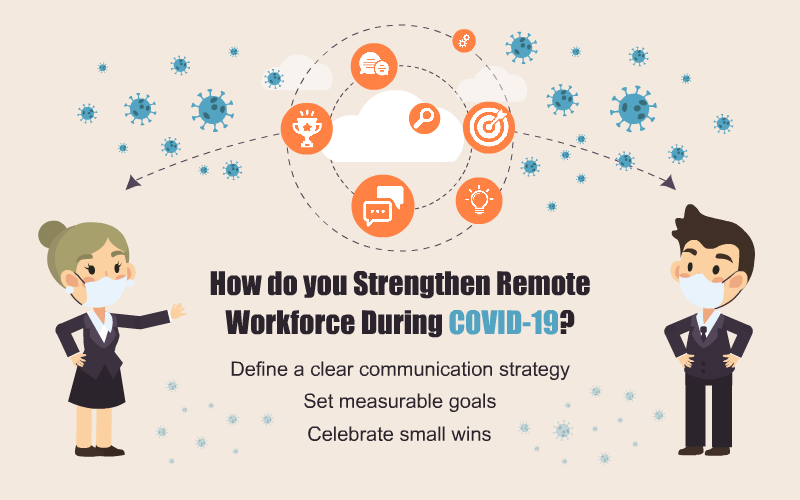How to Deliver Effective Compliance Training for Your Remote Teams?

Remote work, which once was a rare phenomenon, is a common site in 2024. While this flexibility offers numerous benefits, it also presents unique challenges, particularly when it comes to ensuring employees adhere to critical compliance regulations. Effective compliance training is essential for all organizations, but for those with geographically dispersed teams, it takes on added significance.
This blog will explore the "what" and "why" of compliance training and delve into strategies for delivering engaging and impactful programs for your remote workforce.
Why is Compliance Training Crucial for Compliance Training?
Remote work offers flexibility, but ensuring compliance adds a layer of complexity. Without in-person oversight, equipping your geographically dispersed workforce with the right knowledge is critical.
Remote Teams: Why Compliance Training Matters More:
- Reduced Risk: By understanding legal guidelines, remote workers are less likely to make unintentional mistakes, protecting the organization from legal issues.
- Enhanced Data Security: Proper training equips employees with the skills to handle sensitive data securely, minimizing data breaches.
- Stronger Ethical Decisions: Clear compliance guidelines foster a culture of ethical behavior, even when not physically supervised.
- Elevated Brand Reputation: A well-trained remote team upholds your organization's ethical standards, boosting your brand image.
- Increased Employee Engagement: Compliance training empowers remote employees by clarifying their roles and responsibilities.
What are the Essential Compliance Topics for Remote Teams?
The specific topics covered in your compliance training program will depend on your industry and regulatory landscape. However, some core areas are particularly relevant for remote teams:
- Data Security and Privacy: Educate employees on protecting sensitive data, handling confidential information appropriately, and avoiding phishing attempts.
- Cybersecurity Awareness: Train employees on best practices for securing their devices, using strong passwords, and recognizing cybersecurity threats.
- Acceptable Use Policy (AUP): Outline acceptable and prohibited uses of company-issued devices, software, and internet connections.
- Harassment and Discrimination Prevention: Emphasize the importance of fostering an inclusive and respectful work environment, regardless of location.
- Intellectual Property: Clarify company policies on intellectual property rights and how to handle confidential information.
- Communication and Collaboration Tools: Train employees on the proper use of communication platforms and collaboration tools to ensure ethical and productive interactions.
When developing your training program, consider consulting with Subject Matter Experts (SMEs) within your organization to ensure the content aligns with industry best practices and regulatory requirements.
→ Download Now: Online Learning for Corporate Training [eBook]
What are the Best Strategies to Engage Remote Workforce in Compliance Training?
Traditional compliance training, often delivered via lengthy lectures and static presentations, can be less effective for geographically dispersed teams. Here are some strategies to captivate your remote audience and promote active learning:
- Embrace eLearning Development: Utilize eLearning modules that offer a flexible and accessible learning experience for remote employees.
- Incorporate Interactivities: Integrate quizzes, simulations, and branching scenarios to make learning interactive and engaging.

- Leverage Generative AI: Explore the potential of generative AI to create personalized learning content and cater to individual learning styles.
- Weave in Storytelling: Harness the power of storytelling to make compliance training more relatable and memorable.
- Utilize Scenario-Based Learning: Develop realistic scenarios that simulate real-world situations and encourage employees to apply their knowledge.
- Embrace Microlearning: Break down complex topics into bite-sized modules that are easy to consume and fit into busy schedules.
- Incorporate Gamification: Introduce game mechanics like points, badges, and leaderboards to make learning fun and competitive.

- Prioritize Responsive eLearning Design: Ensure your training program adapts seamlessly to various devices, from desktops to tablets and smartphones.
- Embrace Mobile Learning: Make your training modules accessible on mobile devices to empower employees to learn on-the-go.
By incorporating these elements, you can create a dynamic and engaging learning experience that resonates with your remote workforce.
Beyond the Basics: Continuous Learning and Reinforcement
Compliance training is not a one-time event. To ensure long-term knowledge retention and behavioral change, consider incorporating ongoing reinforcement strategies:
- Regular Updates: Keep your training program current with evolving regulations and industry best practices.
- Knowledge Checks: Implement periodic quizzes and assessments to gauge employee understanding to identify areas for improvement.
- Live Q&A Sessions: Host live sessions with SMEs or compliance officers to address employee questions and concerns in real-time.
- Microlearning Reinforcement: Deliver periodic microlearning modules as refreshers to reinforce key compliance concepts.
- Peer-to-Peer Learning: Encourage knowledge sharing and collaboration among team members through online forums or discussion boards.
How can CommLab India’s Training Help Transform Compliance Training? [Video]
Conclusion: Building a Culture of Compliance
Delivering effective compliance training for remote teams is an ongoing process. By incorporating the strategies outlined above, you can ensure your remote workforce is well-equipped to navigate the complexities of compliance and uphold the organization's ethical standards.
Ready to create engaging and effective compliance training for your remote teams? Download our free eBook: "Online Learning for Corporate Training", to discover practical tips, industry best practices, and valuable resources to empower your remote team with the knowledge and skills they need to thrive.





